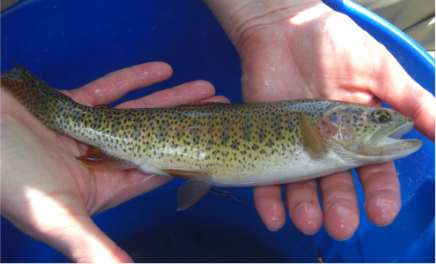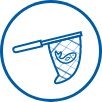Nets are used to collect fish and macro-invertebrates (such as aquatic insects and snails) throughout the stream reach. Macroinvertebrates are collected using a special net, preserved, and sent to experts for identification. Fish are identified in the field and for the most part released. A few fish are also collected to test for mercury and other contaminants in larger fish.
How are these data used?
Nets are used to collect samples for one human health and two biological indicators.
Biological Indicators

Contaminants measured in fish tissue include mercury, PCBs, and PFAS (perfluoroalkyl and polyfluoroalkyl substances). Mercury is widely distributed in the environment. Once mercury is deposited in water, certain microbes convert it into methylmercury, a highly toxic form that accumulates in fish. Check local fish advisories before eating fish from rivers and streams.
Where are fish tissue samples collected?
sample reach using methods
like electrofishing.

To learn more, see the
NRSA Field Operations Manual.




